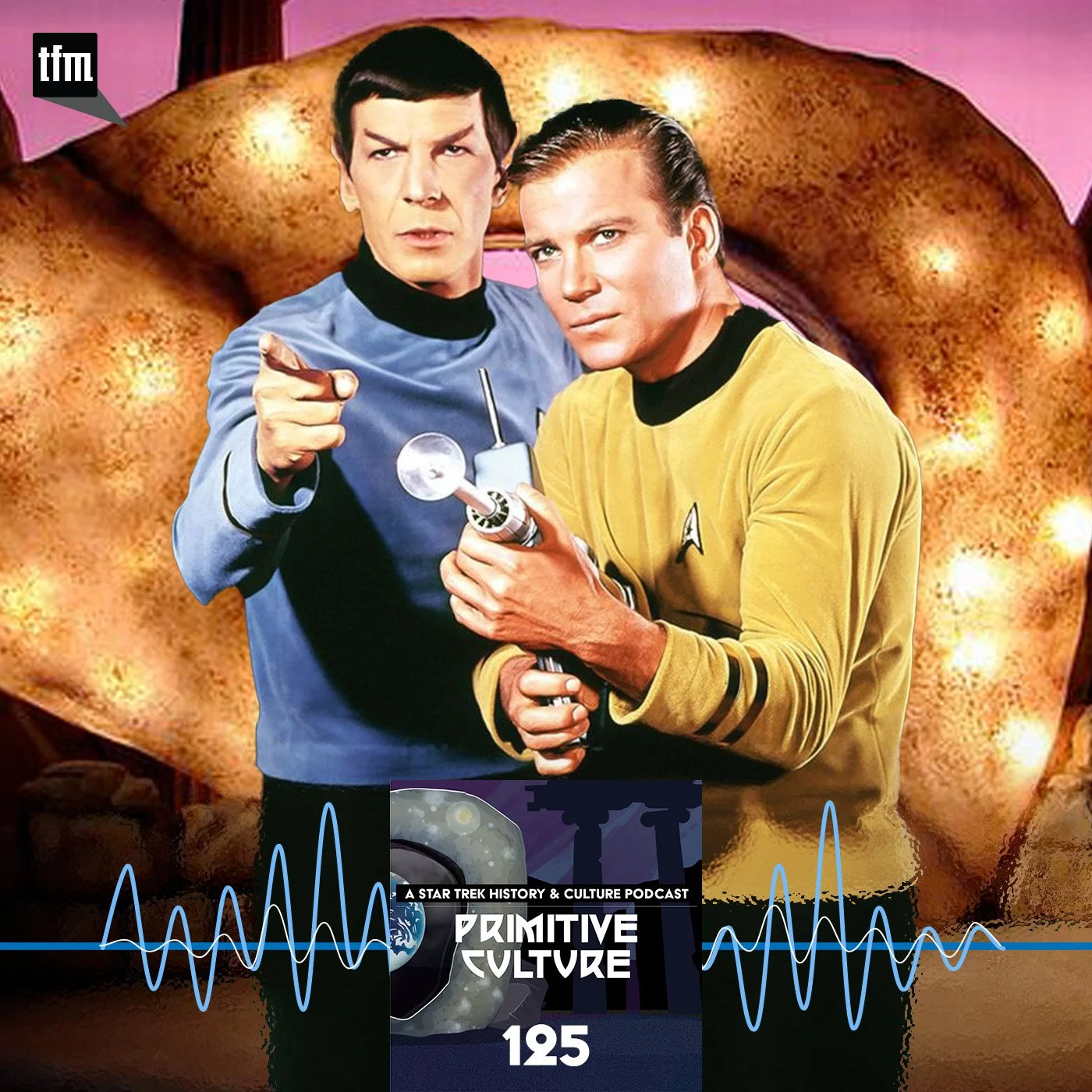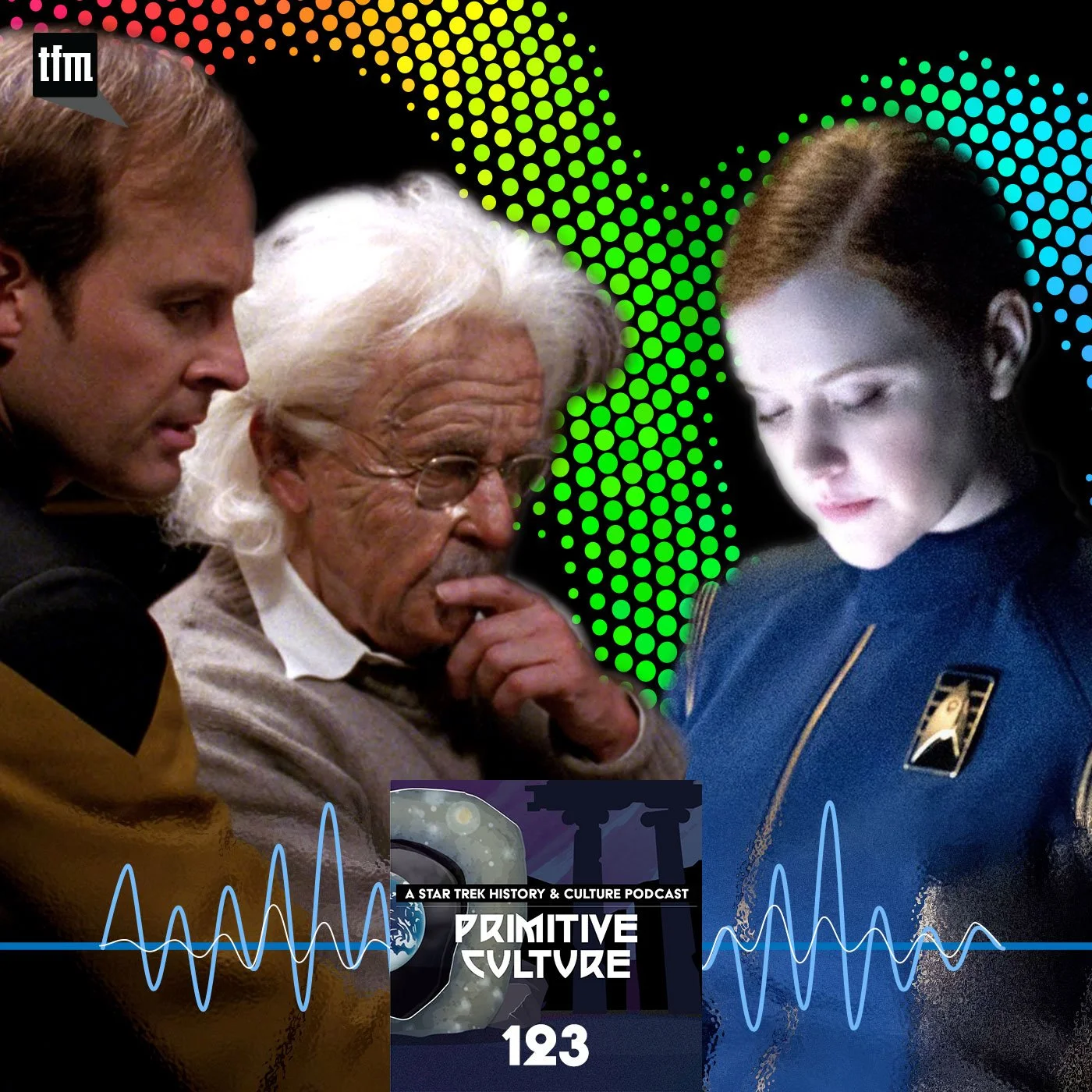Twenty Thousand Leagues across the Delta Quadrant.
Running Time: 1 hour 16 minutes 28 seconds
Download / RSS / Send us a message / Discuss the show / Support Trek.fm
Throughout Star Trek: Voyager’s seven seasons, Tom Paris repeatedly proved his credentials as a mid-20th-century history buff, with his replicated TV set, black-and-white B-movie holonovels, and even his own 3D cinema. But in the fifth-season episode “Thirty Days,” he reveals a boyhood fascination with a much earlier period of history and literature: the age of great nautical exploration. In particular, young Tom was obsessed with Jules Verne’s 1870 novel Twenty Thousand Leagues Under the Sea, a pioneering work of science fiction that—in its vivid depiction of the wonders of the ocean—anticipated much of Star Trek’s fascination with another vast unknown: space.
In this episode of Primitive Culture, host Duncan Barrett is joined by Lee Hutchison to discuss Twenty Thousand Leagues Under the Sea (and the popular 1954 Disney adaptation) in relation to “Thirty Days” and the fourth-season Voyager episode “Year of Hell,” which borrows much of its plot from Verne’s novel, transposing the action from Captain Nemo’s submarine Nautilus to Annorax’s temporal weapon ship. Join us for a deep-dive into the murky depths of this remarkable book, in which madness, monsters, and mutiny are never that far from the surface.
Chapters
Intro (00:00:00)
Diving the Starry Sea (00:05:00)
“Year of Hell” (00:20:55)
Temporal Psychosis (00:51:00)
Mutiny (01:07:00)
Final Thoughts (01:13:45)
Host
Duncan Barrett
Guest
Lee Hutchison
Production
Duncan Barrett (Editor and Producer) C Bryan Jones (Executive Producer) Matthew Rushing (Executive Producer)











